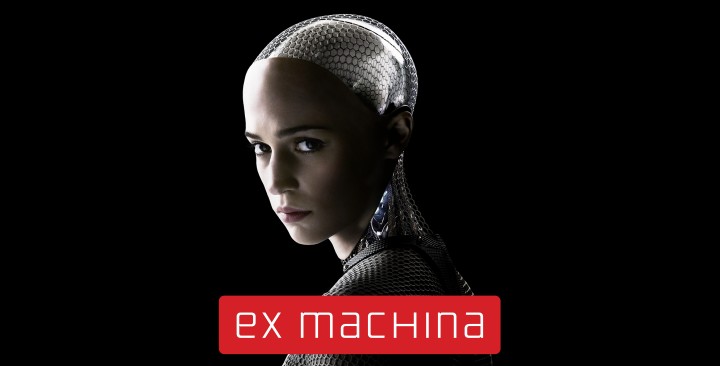Ex Machina, Alex Garland’s directorial debut, is a truly thought provoking film with a fitting ambiguous ending which should leave your mind racing. Though the film’s premise is not original (considering Spielberg’s AI, Pinocchio, Blade Runner – the list goes on) there are characteristics which separates the script from others of it’s kind. The story is set in the middle of nowhere in the isolated state of the art home belonging to the AI-creator and tech-billionaire Nathan. Caleb, who starts off as the protagonist, has been brought there to serve as the human part of a kind of Turing Test. Ava is the AI which will be examined. Her ability to exhibit intelligent behavior equivalent to, or indistinguishable from, that of a human will be determined by Caleb, a coder at a Google-esque company called Bluebook created by Nathan. Ava is also the enigma at the heart of this film and the philosophical problems that it presents.
SPOILER ALERT
Various thought experiments are referred to in the film but also experienced first hand by the viewer. The question we ask ourselves is, can Ava, (as in the thought experiment ‘Mary’s Room’ mentioned by Caleb in the movie) ever really know the world if she is only ever kept in the room Nathan prepared for her? For as she is kept in this prison she could be seen as stuck inside Plato’s cave where she can only see the shadows of reality dancing on the wall of the cave. She cannot experience them first hand.







